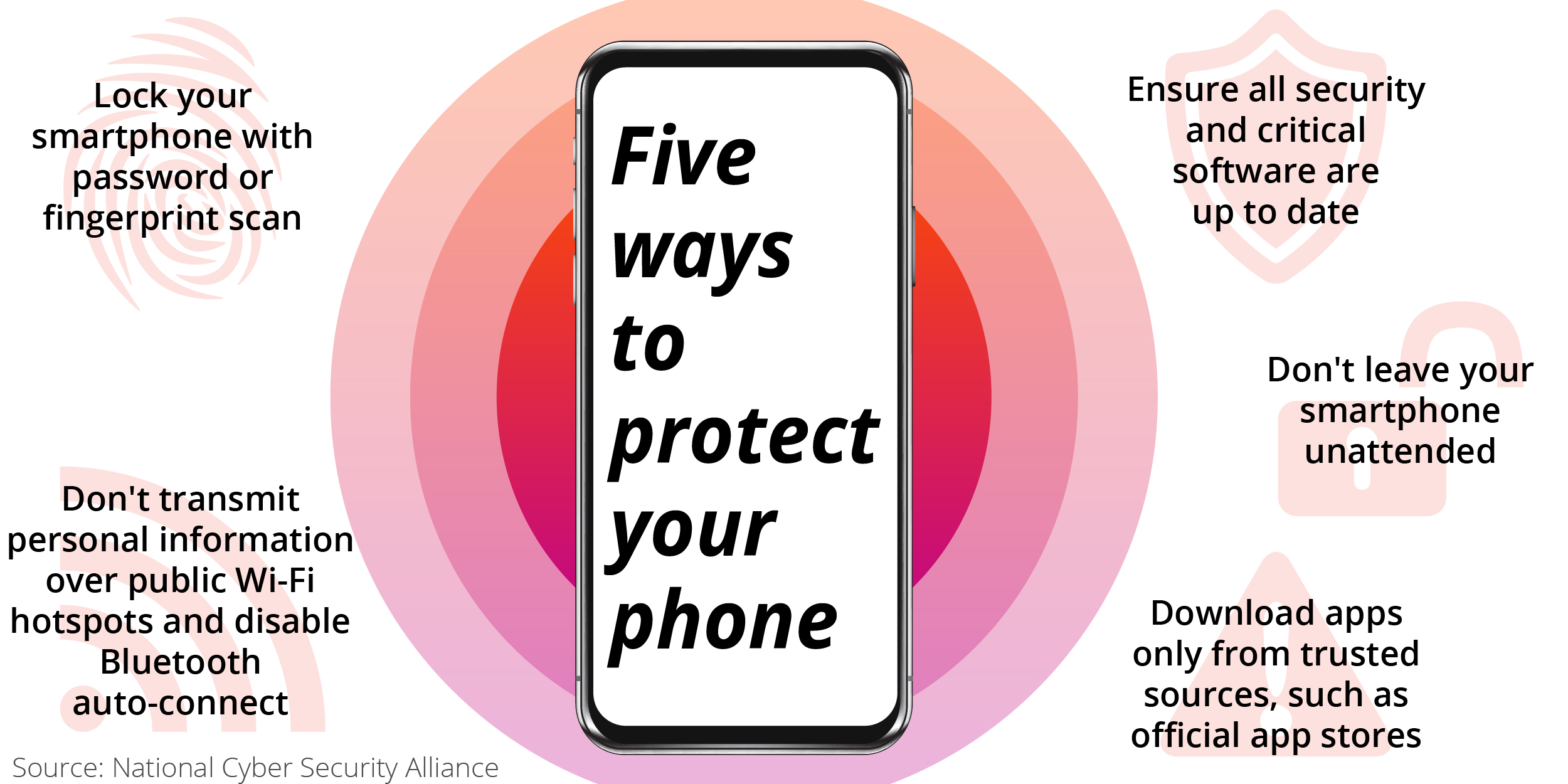Protecting your mobile device from cyber criminals has never been more important.
With more than 2 billion people worldwide accessing the internet through smartphones, hackers and internet thieves have never had greater incentive to devise new scams.
Many of those scams are exploiting people’s fears of the COVID-19 pandemic.
“Scammers are leveraging the COVID-19 pandemic to steal your money, your personal information, or both,” the U.S. Federal Bureau of Investigation said in March 2020. “Don’t let them.”
Tactics range from selling bogus cures for COVID-19 to phishing emails, purportedly from public health organizations, that insert malware on smartphones.
As a global leader in cybersecurity, the United States partners with other countries and the private sector to protect the mobile networks we all use. But smartphone users should also take steps to protect themselves.

The National Cyber Security Alliance, a nonprofit group based in Washington, recommends that smartphone users follow these steps to protect themselves from cybercrime:
- Update your security and critical software to ensure protections are current.
- Lock your smartphone with a password or fingerprint scan.
- Don’t transmit personal information over unsecure networks, such as free Wi-Fi at a hotel or cafe.
- Disable Bluetooth auto-connect and only connect to networks intentionally.
- Download apps only from trusted sources, such as official app stores.
- Do not leave your smartphone unattended.
The United States stands ready to partner with other countries to secure cyberspace globally, including by sharing ways to detect and remove malware, enhancing cyber incident response and policymaking capacity, and building international consensus around a framework of responsible state behavior.
The original article is here on ShareAmerica.







COMMENTS0
LEAVE A COMMENT
TOP